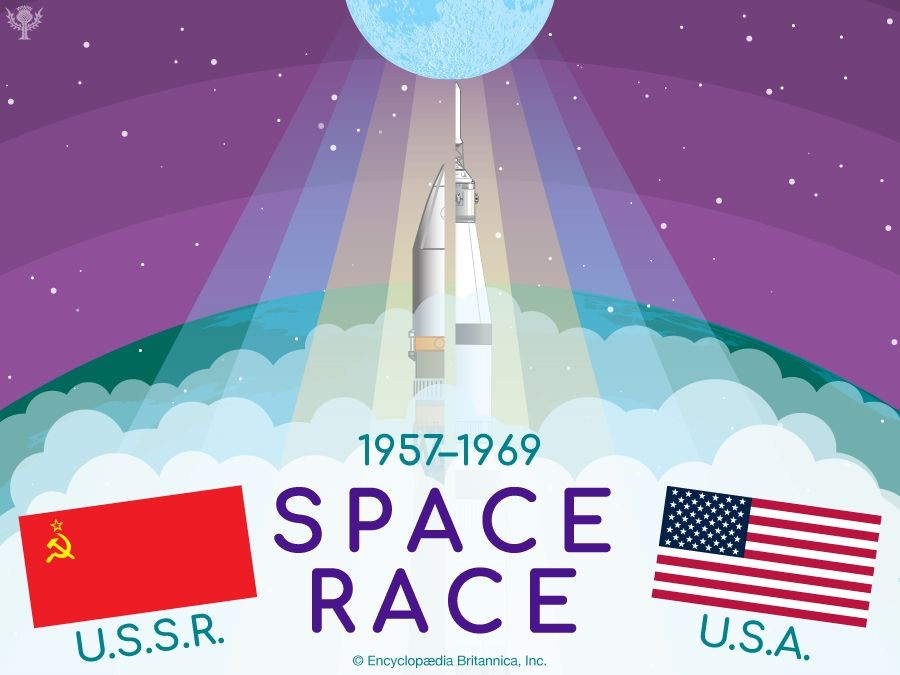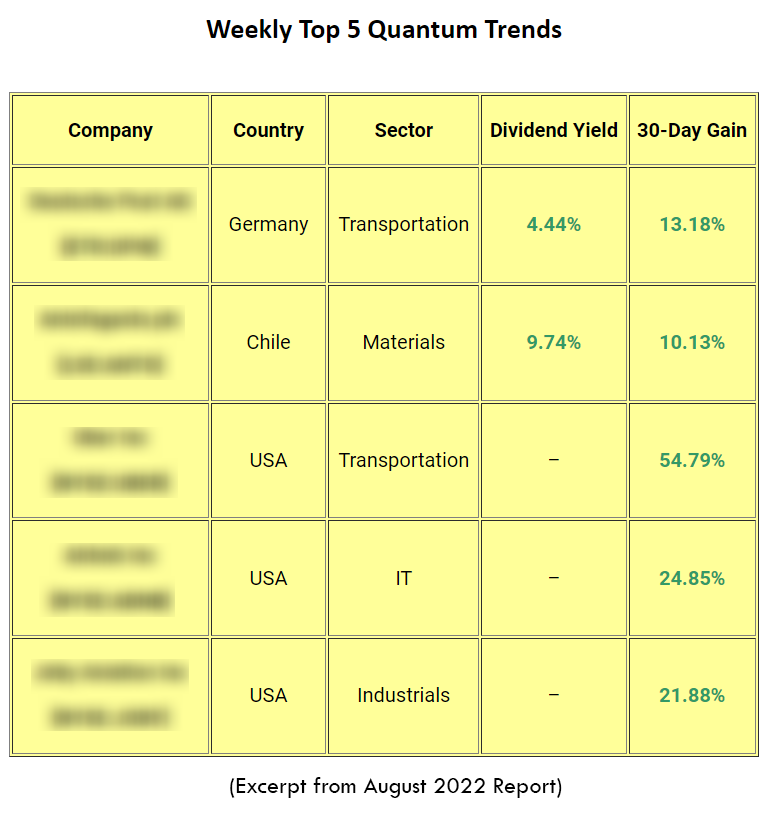Quantum Wealth Summary
- A strategic rivalry is heating up between the United and China — and this is paving the way for a new Space Race.
- Mankind is returning to the Moon with renewed zeal and focus — and one moonshot company with links to NASA could be a pioneer in the commercial exploration of space. Is this the time to jump on board?
- As a bonus: we also reveal our Weekly Top 5 Quantum Trends. These are the most impactful global opportunities that we are currently watching this week.
‘Space: the final frontier. These are the voyages of the starship Enterprise. Its five-year mission: to explore strange new worlds. To seek out new life and new civilizations. To boldly go where no man has gone before!’
These words are iconic. Legendary.
They capture the imagination.

Source: IMDB
Captain James T. Kirk first spoke these words in 1966, on the original TV series of Star Trek. The show was surprisingly progressive for its time:
- It offered us an optimistic view of the future, with a multinational, multiracial crew united in common purpose.
- In the world of Star Trek, people of the Federation had succeeded in developing a post-scarcity economy — thanks to automation and artificial intelligence.
- This allowed them to move past the darker impulses of greed and war — giving them the chance to focus almost exclusively on establishing mutual understanding and common prosperity.
- French economist Manu Saadia, who wrote the book Trekonomics, sums it up like this: ‘What would the world look like if everyone had everything they wanted or needed?’

Source: Britannica
Of course, Star Trek is utopian science fiction. The actual reality of the 1960s was much harsher.
The United States and the Soviet Union were locked in the Space Race. And it was a fierce rivalry that America appeared to be losing — at least in the beginning:
- The Soviets had already scored two stunning victories. In 1957, they launched Sputnik, the first satellite in space. In 1961, they launched Yuri Gagarin, the first man in space.
- Reeling from these blows, America desperately needed a game changer. So President John F. Kennedy gave NASA an impossible task: beat the Soviets by landing a man on the Moon by the end of the decade.
- It was expensive. It was difficult. But against all the odds, the Apollo 11 mission succeeded. Neil Armstrong landed on the Moon in July 1969. Sadly, this was a historic triumph that Kennedy himself did not live to witness.
So, in nail-biting fashion, American prestige was secured in the end. The Soviets were chastened and abandoned their own lunar attempts.
But happened after?
Well, sadly, the momentum of NASA’s space programme eventually fizzled out. The sense of urgency was no longer there. There would be only six more trips to the Moon — culminating in Apollo 17, the final lunar manned mission, which happened in December 1972.
Since then, America has pursued no further manned missions to the Moon.
Was it about cost? Or was it about complacency? Or was it simply a failure of the imagination?
Well, perhaps it was all of the above.
It’s hard to believe it, but America hasn’t been on the Moon for 50 years now.
This feels like an agonising eternity — especially for the legions of Star Trek dreamers who fully expected the initial Moon landing to catapult us into a new golden age of space exploration.
Of course, it hasn’t turned out that way. What’s happened instead is a strange sense of being inert and lethargic.
Sure, we’ve had astronauts on space stations orbiting Earth — Skylab, Mir, ISS, TSS — but these endeavours have been perceived as lower risk. Unexciting. They have never quite been able to capture the public imagination in the same way as the Apollo missions did.

Source: New Scientist
But watch out. The time for complacency is over, and a quantum shift could be about to happen. It’s now clear that Cold War 2.0 is on the cards, paving the way for a new Space Race. Here’s why:
- The United States is feeling nervous about China taking steps to push into space exploration. The Chinese have already landed robot rovers on the both the Moon and Mars — and they have expressed the wish to go further.
- This has re-energised the Americans to go back to the Moon. Potentially, this will involve the building of permanent lunar bases, which will then be used to spearhead manned missions to Mars.
- The commercial exploitation of space is within the realm of possibility. This may involve mining for resources, as well as establishing new strategic opportunities in tourism and construction.
- Once more, the ideological battle lines have been drawn — free enterprise versus authoritarianism. And one American company with strong links to NASA could be set to benefit as it takes advantage of this brave new frontier…








John is the Chief Investment Officer at Wealth Morning. His responsibilities include trading, client service, and compliance. He is an experienced investor and portfolio manager, trading both on his own account and assisting with high net-worth clients. In addition to contributing financial and geopolitical articles to this site, John is a bestselling author in his own right. His international thrillers have appeared on the USA Today and Amazon bestseller lists.